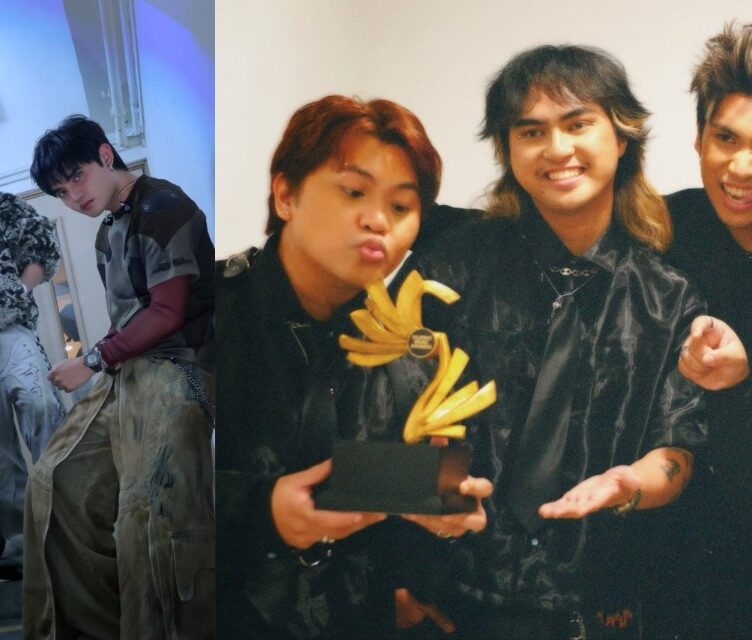GHOSTING is commonly used today to describe people who suddenly disappear and cut off all contact without any explanation. This behavior can be emotionally damaging, often leaving the person on the receiving end, questioning their self-worth and struggling with their self-esteem.
It hurts, making them wonder if they were somehow at fault. Their minds become tangled with unanswered questions, haunted by the silence, with no replies and closure.
While the term is widely utilized on social media, many people don’t realize that they’ve been ghosting someone or that their actions even count as ghosting.
“We met back when I was still in school. He was a friend of my closest classmate, Kring.” Jessie shared with RepublicAsia.
One day, Kring said she had a friend who wanted to meet up and ask Jessie to come along.
“That’s when I first saw him. From then on, he became part of our circle–then slowly became part of my life.”
Jessie and the guy exchanged numbers, added each other on Facebook, and he started to hang out with them more often. Then, the day came when they went on a swimming trip. That night, something shifted between them. They found themselves alone, sitting in a small boat on the water under the stars. “We talked about everything, likes, dislikes, and dreams. It felt like we were getting to know each other for the first time.”
After that evening, their conversations became deeper, more frequent, and more personal. Then, one day, he confessed. He told her he had feelings for her and asked if he could court her. “I didn’t say yes right away because I wasn’t sure how I felt. My feelings weren’t that deep yet.”
But she decided to give him a chance, to see if he could truly win her over. He courted her for three months. In the end, she said yes.
“We became official, and our relationship lasted almost three years.” The guy was close to Jessie’s family, and she also was close to his family at first. However, things started to change. He began skipping school just to see her. Since they were in a long-distance relationship, he would often travel far just to be with her. His mother grew upset with him, and worse, she started blaming Jessie for his absences. “We were still so young back then, and I was immature too. I just wanted to be with him. I didn’t care if he missed class—as long as I got to see him.”
The distance between them grew. He became afraid of his mother, so they rarely saw each other anymore.
Then, one day, Jessie went out with her best friend and met someone new—a guy who, to her surprise, turned out to be her longtime crush. “I couldn’t believe it. He was friends with my best friend too. What were the chances?”
Her relationship with her boyfriend was already fading, and now, here she was unexpectedly reunited with someone she had admired from afar. Her feelings began to shift.
It was her birthday, and unlike before, she and her boyfriend didn’t celebrate it together. He wasn’t invited. But her crush was.
“Back then, we always celebrated our birthdays together–we had the same birthday. But that year felt different. Cold. Distant. I started losing interest.”
She no longer felt loved.
The truth was, she was the kind of person who needed quality time. If someone stopped showing up, she assumed they had stopped loving her.
So, she began to gravitate toward her crush. They lived close to each other. If she wanted to see him, all she had to do was drop by the corner store. If she wanted to talk, they’d grab coffee. He was there, present and constant.
Their connection grew deeper, slowly but steadily. They even had special names for each other. Before Jessie realized it, she was emotionally cheating.
When December came, her boyfriend started asking questions wondering what they still were. He could feel it too–that something had changed, that something was off.
“The worst part is…my crush had already confessed, and I said yes. I got into a new relationship while I was still in the old one.”
Jessie cheated.
She never officially broke up with her boyfriend. She never gave him closure. She simply stopped responding, stopped explaining, and ignored his messages.
One day, perhaps out of guilt, she agreed to meet up with him. They spent time together. While she was asleep, he went through her phone. That’s how he found out—he read everything. All the messages. All the proof. He confronted her, and instead of apologizing, she got angry.
“I was angry that he read my messages. But deep inside, I knew I had no excuse. I had already drifted away. I wasn’t even replying to him anymore.”
One message stayed with Jessie. He had written, “Please, even if it’s the two of us.” But even after that. She said nothing, and she never replied.
“I just let him fade away. I ghosted him. He kept messaging, hoping for answers, hoping for closure but I gave him none.”
The truth was, Jessie thought he would understand. She believed his love for her would make it easier for him to let go. “Maybe that was selfish. No—it was selfish.”
But she didn’t look back. She focused on her new relationship and shut the door on him completely.
The three years they had spent together got wiped away, erased by the fact that she had found someone who gave her more of their time.
Jessie regretted how she ended things. “If I could go back, I should’ve ended my relationship properly before starting a new one. I should’ve been honest. He didn’t deserve to be left without a word, without closure, without even a simple, ‘I’m sorry.’”
She never explained and never apologized. She just disappeared. “And that’s something I’ll always carry with me.”
So how do you spot a ghoster?
Most ghosters aren’t sure of what they feel.
“They are never sure, like fish in the water floating up, sinking down,” said Jessie, who had also been ghosted before. “They’re only around when they need something or when they’re bored.”
You become a convenience, not a priority. Ghosters are inconsistent because their emotions are unstable. You’ll never get the assurance you need from them.
They’re “always busy.”
When you want to meet or talk, suddenly they’re “busy.” But the truth is—no one is too busy for someone they genuinely want to be with. “There’s a difference between giving time because you want to be with someone and giving time only because you’ve got no one else around.”
Manipulative. Sad boy, sad girl.
“Instead of feeling bad for yourself, you end up feeling bad for them.” When you ask what’s wrong, they flip the script. They say all the right words and gaslight you.
They know you have feelings, so you will believe them. But in reality, they’re just manipulating you.
“A lot of ghosters are like this–they want you to stay, wait, and be there when they need you. But they never plan to commit.” Once they feel like you’re not entertaining anymore, or they lose interest, they disappear.
What can you do to avoid becoming a ghoster?
Always try to communicate.
Ghosting is selfish. Almost everything can be talked about. “When you ghost someone, guilt lingers,” Jessie emphasized. “Why did you do it? Everyone has different reasons, but it all comes down to not knowing how to communicate.”
The world doesn’t only revolve around you. The other person is waiting, holding onto silence, with no words, no explanations, and that’s cruel.
Be sure of what you want and who you want.
“One of the reasons people ghost is because their feelings change.”
Before entering into any kind of mutual understanding or relationship, make sure your feelings are real. Don’t rush it. Because if it isn’t strong enough, you’ll lose interest fast and just disappear.
Today, you want them, but tomorrow you don’t.
Be honest even when it’s uncomfortable.
“If it reaches the point where you don’t feel the same anymore, say it. Be honest, even if it’s awkward or painful.”
If you’re not interested, don’t entertain them. This goes for both friends and romantic connections. Cut people off properly so they won’t be left hoping for something that isn’t coming.
People who ghost are often indecisive. Always full of “what ifs.” They entertain you but only give half of their attention, never the full thing. And when you start falling for them, they make you feel like they’ll catch you. Then, when you open your eyes-they’re gone.
Every person has their own reason why they ghost, but it is important to think of other people’s feelings too, not only yourself.
With reports from Ria Corocoto
How useful was this post?
Click on a star to rate it!
Average rating 5 / 5. Vote count: 1
No votes so far! Be the first to rate this post.
We are sorry that this post was not useful for you!
Let us improve this post!
Tell us how we can improve this post?









